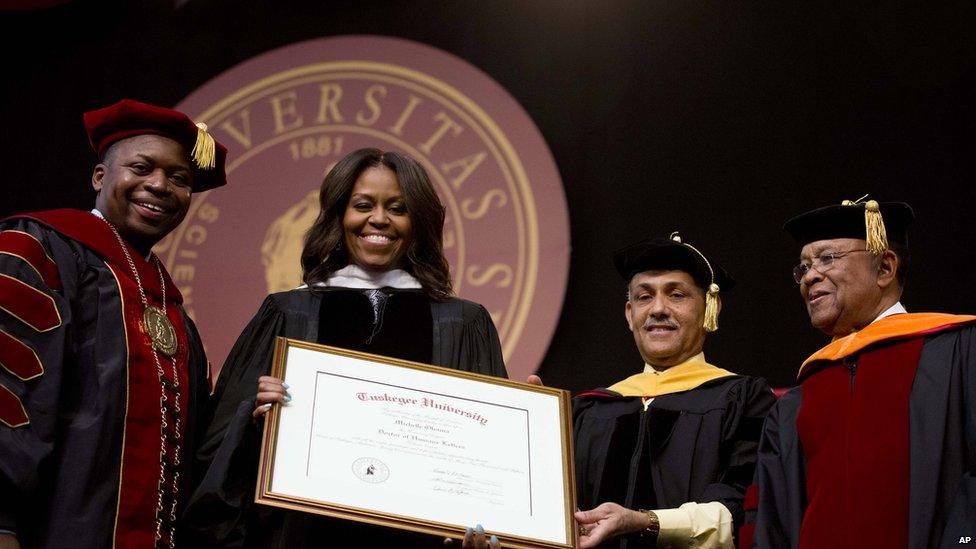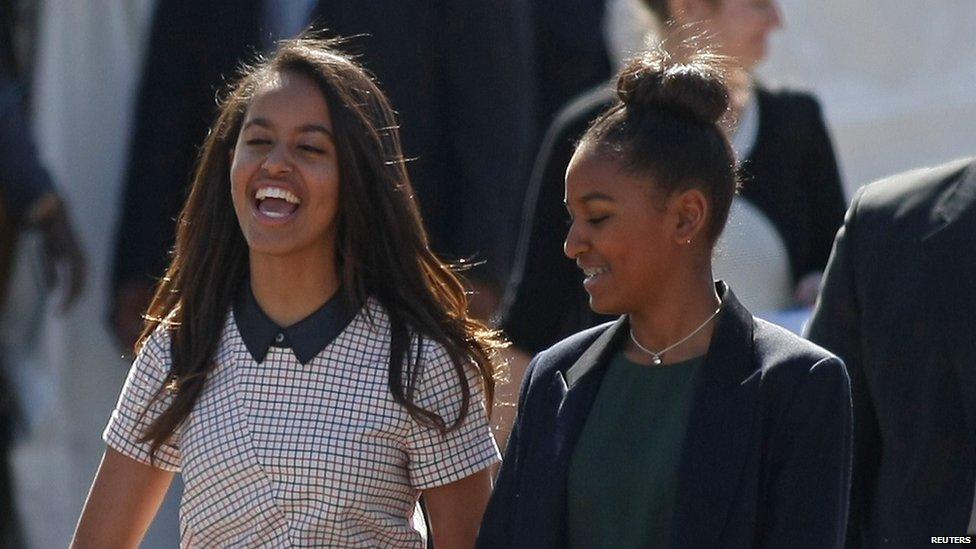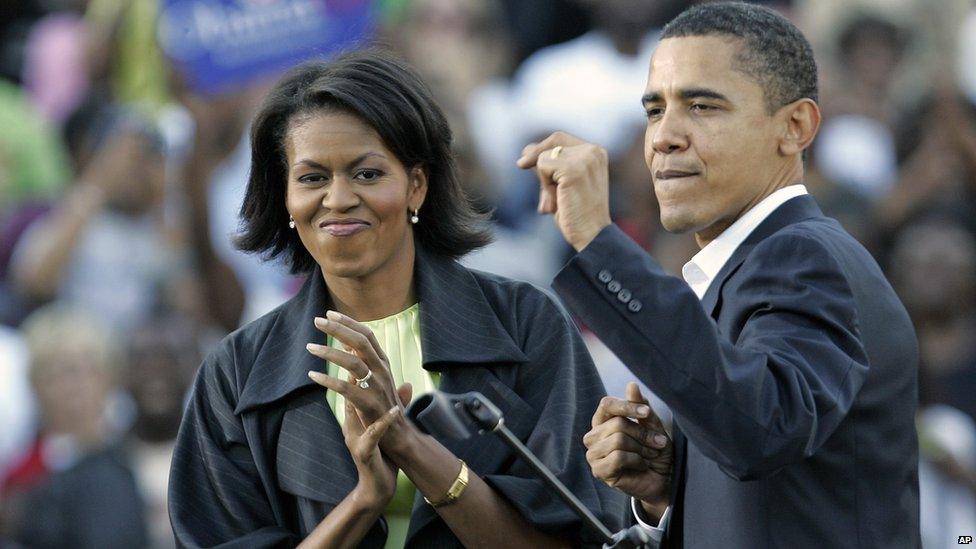Michelle Obama on racial pressures she faced as First Lady
- Published

Michelle Obama was speaking to graduates at Tuskegee University in Alabama
As a package they are iconic, the first black President and First Lady of the United States.
Barack Obama's election was seen as a chance in the US to put its troubled racial past behind it.
But Michelle Obama said she had to deal with more scrutiny because of the colour of her skin.
"Back when my husband started campaigning for president, folks had all sorts of questions of me." she said.
Speaking to graduates at Tuskegee University in Alabama, she described the kind of focus she found herself under.
"What kind of First Lady would I be, what kind of issues would I take on?" she said.
"The truth is those kind of questions would be posed to any candidate's spouse, that's just the way the process works.
"But as potentially the first African-American First Lady, I was also the focus of another set of questions and speculations, conversations sometimes rooted in the fears and misperceptions of others.

Michelle Obama has often described herself as 'Mom-in-chief' to her daughters Malia (L) and Sasha
"Was I too loud, or too angry? Or too emasculating? Or was I too soft?
"But eventually I realised, if I wanted to keep my sanity, and not let others define me, there was only one thing I could do, and that was to have faith in God's plan for me."
She added: "I love our daughters more than anything in the world, and that may not be the first thing some folks want to hear from an Ivy League educated lawyer, it is truly who I am.

"By staying true to the me I've always known, I've found that this journey has been incredibly freeing, because no matter what happened I had the peace of mind of knowing that all of the chatter, the name calling the doubting, all of it was just noise.
"It did not define me, it didn't change who I was, and most importantly it couldn't hold me back. "
Follow @BBCNewsbeat, external on Twitter, BBCNewsbeat, external on Instagram, Radio1Newsbeat, external on YouTube and you can now follow BBC_Newsbeat on Snapchat